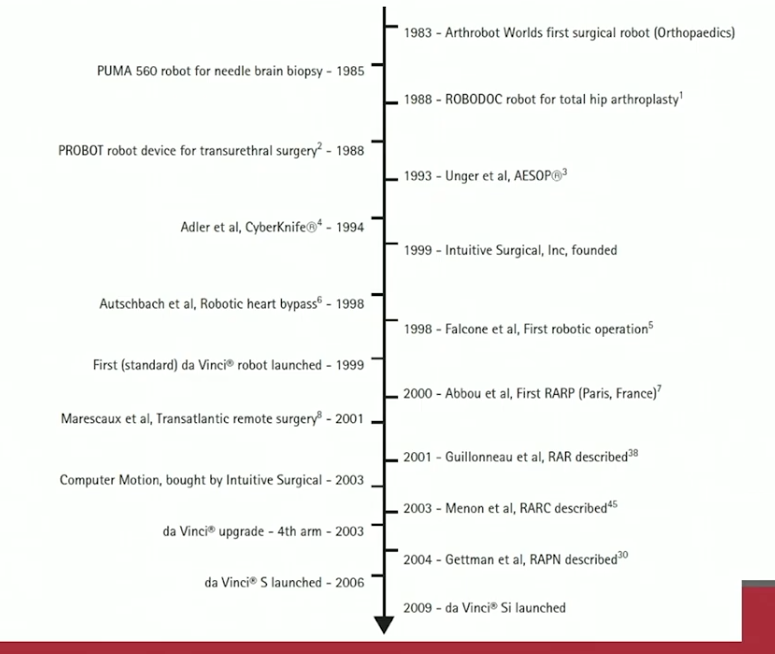How to cite: Davis, Michael S. “Radical Retropubic Prostatectomy: Where Did You Go?” September 14, 2018. Accessed Jan 2026. https://grandroundsinurology.com/radical-retropubic-prostatectomy-where-did-you-go/
Radical Retropubic Prostatectomy: Where Did You Go? – Summary:
Michael S. Davis, MD, reviews the historic shift from radical retropubic prostatectomy (RPP) to a robotic technique dominating practice trends. He discusses the influence of marketing and industry on this trend, as well as cost and outcome benefits of both techniques.
Abstract:
Radical retropubic prostatectomy was the most prevalent surgical procedure for in prostate cancer during the late 1990’s and early 2000’s. However, 1992 marked the advent of minimally invasive radical prostatectomies. This instigated a fervor for minimally invasive techniques. Now, the retropubic technique only makes up about 20% of radical prostatectomies performed today.
In 2003, Intuitive Surgical bought Computer Motion. Over time, Intuitive Surgical became the most prevalent surgical robotic company in the world. Due to demand from physicians and patients, and hospitals’ using this technology to market to patients, trends show a higher rate of robotic surgeries performed in recent years than in any time in history.
Procedure volume grew with the instillation of more robotic systems. Additionally, patients diagnosed with prostate cancer in 2007 were more likely to undergo surgery than those diagnosed earlier.
Evidence supports that robot-assisted radical prostatectomy (RARP) is costlier that RPP per case. Nuanced factors, such as increased patient volume, length of operating room stay, postoperative care, and time patients can return to work, may ultimately mitigate costs to hospitals, payers, and society. However, conflicts of interest and bias most likely influenced these conclusions. More objective evidence estimates that RPP costs significantly less than a robotic technique.
As there is no clear benefit to RARP regarding urinary, sexual, and oncological outcomes, RPP has a comparative economic advantage. Hopefully, refinements of robotics, newer technologies, and competition in the industry will lower prostatectomy costs in the future.
About Innovations in Urologic Practice
Innovations in Urologic Practice (IUP) is an annual CME-accredited conference devoted to updating urologists on the rapidly changing healthcare environment. Topics focus on innovative diagnostic and treatment strategies, controversies, new and currently developing technologies, and challenges in today’s urologic practice. Dr. Davis presented this lecture during the 23rd IUP in 2018. Please visit this page in order to learn more about future IUP meetings.
ABOUT THE AUTHOR
Michael S. Davis, MD, MBA, MHA, FACS, is a professor in the Department of Surgery and is chief of the Division of Urology at the University of New Mexico School of Medicine in Albuquerque, New Mexico. He serves as the surgical director of renal transplant surgery and the vice chair of clinical affairs for the Department of Surgery at the University of New Mexico School of Medicine.
Dr. Davis earned his MD from the University of New Mexico School of Medicine where he also completed his internship in surgery and his residency in urology. He completed a fellowship in urologic oncology at the University of Miami and Jackson Memorial Hospital in Miami, Florida. Dr. Davis earned an MBA from the University of New Mexico Anderson School of Management in Albuquerque, New Mexico, and he earned an MHA from Colorado State University in Fort Collins, Colorado.
Dr. Davis is a practicing urologist who treats patients in the Albuquerque area. He specializes in kidney transplantation and urologic oncology. Dr. Davis has been an active member of the American Urological Association since 2003. He is also an active member of the American Society of Transplant Surgeons and the American College of Surgeons.





